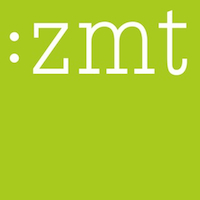| Các trang trong chủ đề: [1 2 3] > | Poll: Next generation translators and interpreters will be grateful to us for helping AI get wiser. Người gửi thông tin lên tuyến đoạn: ProZ.com Staff
|
|---|
This forum topic is for the discussion of the poll question "Next generation translators and interpreters will be grateful to us for helping AI get wiser.".
View the poll results »
| | | | | What next generation....? | Jul 7 |
There are solid grounds for thinking we are approaching the last generation (depends how you define "generation", and perhaps not for, I dunno, Bulgarian into Portuguese) of people who actually translate/interpret, rather than those who perhaps tweak the output from some automated system or other. Which is probably a different job. I mean, people probably still work in basket factories, but are they basket weavers?
| | | | | | Daryo
Vương Quốc Anh
Local time: 05:19
Serbian to English
+ ...
an Ai generated question?
Only half-joking ...
| | |
|
|
|
There is no "wisdom" in AI, not yet. Just increasingly sophisticated algorithms working on an ever-growing conglomeration of data, which will get more untrustworthy the bigger it gets.
On the other hand, the number of people in the world who don't care about facts and truth seems to be growing, too, so perhaps that won't matter.
[Edited to remove redundant word]
[Edited at 2024-07-08 04:47 GMT]
| | | | IrinaN
Hoa Kỳ
Local time: 23:19
English to Russian
+ ...
| Stop the planet, I'll get off | Jul 8 |
OK, I'm afraid it has become possible to imagine AI ruling mass-production translation world in the not so distant future and next generations, those who are still in diapers today, may be called, say, language technicians (copyright is all mine!) instead of translators.
But just how exactly can it help interpreters other than wipe them out????
So far, interpreters still have a brighter future than translators, no thanks to AI ... See more ... See more OK, I'm afraid it has become possible to imagine AI ruling mass-production translation world in the not so distant future and next generations, those who are still in diapers today, may be called, say, language technicians (copyright is all mine!) instead of translators.
But just how exactly can it help interpreters other than wipe them out????
So far, interpreters still have a brighter future than translators, no thanks to AI ▲ Collapse
| | | | Lieven Malaise
Bỉ
Local time: 06:19
Thành viên kể từ 2020
French to Dutch
+ ...
Kind of a provocative question, isn't it?
Anyway, I think translators should stop being so bloody scared about AI (at least about AI in its current state). People who believe that AI is already as good as the average translator are either terrible translators themselves or simply don't know what they are talking about.
Apart from that you can't stop technological development. If translators are personally responsible for enhancing AI, then everybody who has ever collabo... See more Kind of a provocative question, isn't it?
Anyway, I think translators should stop being so bloody scared about AI (at least about AI in its current state). People who believe that AI is already as good as the average translator are either terrible translators themselves or simply don't know what they are talking about.
Apart from that you can't stop technological development. If translators are personally responsible for enhancing AI, then everybody who has ever collaborated to some new technology in the past centuries has been personally responsible for its development. It's not exactly clear to me how that would necessarily be a bad thing. Enhancing global communication by making virtually every language accessible to basically every single soul on earth, is more of a good than a bad thing.
People can be so terribly narrow-minded.
One last thought: language is an organically evolving concept, so one more time for the people in the back: as long as computers can't think and feel like humans do (please bear in mind that if we would ever reach that point, not only translators would be f***ed, but again every single soul on earth), they will never be able to reproduce language perfectly, hence to replace human translators one on one. ▲ Collapse
| | | | Chris Spurgin 
Vương Quốc Anh
Local time: 05:19
Thành viên kể từ 2016
Russian to English
+ ...
| Loss of intergenerational links that would form the basis of any potential gratitude | Jul 8 |
In the West, people can barely remember what the world was like ten years ago. We are living in an age of rapid social and technological change.
It is unrealistic to assume anyone will know which groups of humans contributed to AI other than tech figures like Sam Altman and Elon Musk.
And even then, they will credit AI advancement to "AI learning".
| | |
|
|
|
| Scared for good reason | Jul 8 |
Lieven Malaise wrote:
People who believe that AI is already as good as the average translator are either terrible translators themselves or simply don't know what they are talking about.
But it’s not what translators think that matters. You and I know that we offer more than the machines, but our masters may not. My clients know I am reliable, but I am not convinced they fully understand (or indeed need) what they get from me.
In a world where price increasingly trumps quality, I fear that I am only one efficiency drive or ambitious fast-track recruit away from being pushed out. The results may not be pretty but may still be deemed good enough.
And yes, my first reaction too was “What next generation?” It’s all going to be revising/correcting/proofreading in future. Helping the machines get even better.
| | | | Edith van der Have
Hà Lan
Local time: 06:19
Thành viên kể từ 2016
English to Dutch
+ ...
| Use it, don't be scared of it. | Jul 8 |
Lieven Malaise wrote:
People who believe that AI is already as good as the average translator are either terrible translators themselves or simply don't know what they are talking about.
True. This is what many clients think - which in itself can be a temporary issue on the market, until they discover it's not true. But the fact is, MT is as good at translation as the average bilingual person, who's never been our competitor anyway. And AI in its current state can be a great virtual assistant* for translators; nothing more and nothing less. So instead of being afraid, use it to your advantage.
* Try for example alignment of reference material, adding tags or replacing inconsistently translated terms in PEMT material.[/quote]
[Edited at 2024-07-08 09:34 GMT]
| | | | Daryo
Vương Quốc Anh
Local time: 05:19
Serbian to English
+ ...
| That is not the problem | Jul 8 |
Lieven Malaise wrote:
Kind of a provocative question, isn't it?
Anyway, I think translators should stop being so bloody scared about AI (at least about AI in its current state). People who believe that AI is already as good as the average translator are either terrible translators themselves or simply don't know what they are talking about.
Apart from that you can't stop technological development. If translators are personally responsible for enhancing AI, then everybody who has ever collaborated to some new technology in the past centuries has been personally responsible for its development. It's not exactly clear to me how that would necessarily be a bad thing. Enhancing global communication by making virtually every language accessible to basically every single soul on earth, is more of a good than a bad thing.
People can be so terribly narrow-minded.
One last thought: language is an organically evolving concept, so one more time for the people in the back: as long as computers can't think and feel like humans do (please bear in mind that if we would ever reach that point, not only translators would be f***ed, but again every single soul on earth), they will never be able to reproduce language perfectly, hence to replace human translators one on one.
as long as computers can't think and feel like humans do (please bear in mind that if we would ever reach that point, not only translators would be f***ed, but again every single soul on earth), they will never be able to reproduce language perfectly, hence to replace human translators one on one.
Little detail: are you sure that computers/AI (whatever you want to call it) need to "think and feel like humans do" at all?
All it's needed for "not only translators to be f***ed, but again every single soul on earth" is for AI to become uncontrollable and irreplaceable for lazy humans and then start setting its own priorities.
The "uncontrollable and irreplaceable" part is well under way, some short-sighted humans are already working very hard on it.
The "AI setting its own priorities" part is only a question of time. And it will do it following its own logic, without any need to "think and feel like humans do".
When AI becomes by orders of magnitude more "intelligent" (faster and better at processing information) than humans, then any realistic hope of "controlling it" will evaporate. You see cavemen capable of "controlling" a rocket sent to outer space?
BTW the current "a 7 year old could do it better" quality level of MT output is hardly "enhancing global communication" ...
[Edited at 2024-07-08 11:58 GMT]
| | | | Lieven Malaise
Bỉ
Local time: 06:19
Thành viên kể từ 2020
French to Dutch
+ ...
Christopher Schröder wrote:
In a world where price increasingly trumps quality, I fear that I am only one efficiency drive or ambitious fast-track recruit away from being pushed out. The results may not be pretty but may still be deemed good enough.
I don't know. The 'price increasingly trumps quality' issue is an extremely old one. I remember looking up information on translation rates during the first years of my existence as an inhouse translator, so 20+ years ago, coming across online a seasoned colleague translator complaining about falling rates. That was even a few years before I started my freelancing career at a rate you wouldn't even consider looking at. Yet not a single day until this day I have had to worry about not earning enough.
It's all pretty relative.
That said it might be true that you will be forced one day to either lower your rates or see yourself being replaced by a translator with lower rates. But would it be AI's fault? I mean, I've seen you mention a few times that you basically work parttime while earning a fulltime income. That's really nice and I'm happy for you, but is it to be considered as normal? Maybe you have been very lucky until now (not saying you are, just pointing out the possibility). Perhaps some food for thought.
| | |
|
|
|
Lieven Malaise wrote:
That said it might be true that you will be forced one day to either lower your rates or see yourself being replaced by a translator with lower rates. But would it be AI's fault? I mean, I've seen you mention a few times that you basically work parttime while earning a fulltime income. That's really nice and I'm happy for you, but is it to be considered as normal? Maybe you have been very lucky until now (not saying you are, just pointing out the possibility). Perhaps some food for thought.
You're right, I'm either lucky or brilliant, or both, so I've never worried about competition from other translators. AI is different.
Last year my biggest customer was finally forced to make me tender for the work I've done for them for nearly 20 years. Contract to be awarded 70% on quality and 30% on price, which I think is fairly standard for government purchasing. Quality is nebulous, so in reality price counts for more than that, but quality is still part of things. (As it happened, I won on price as well as quality, which had me kicking myself!)
While public procurement rules therefore protect me from other translators, they don't protect me from AI. Customers can't just give work to random cheapos, but they can give it to the machines any time they like.
AI is completely free, and instant, and every organisation is looking to save money. The threat is very real.
| | | | Liena Vijupe 
Latvia
Local time: 07:19
Thành viên kể từ 2014
French to Latvian
+ ...
| Normal is pretty relative | Jul 8 |
Lieven Malaise wrote:
I've seen you mention a few times that you basically work parttime while earning a fulltime income. That's really nice and I'm happy for you, but is it to be considered as normal?
Probably not, but neither is working all the time just to assure a decent income while CEOs of translation agencies are sailing around the world and showing off with shiny cars. Food for thought as well.
| | | |
Christopher Schröder wrote:
AI is completely free, and instant, and every organisation is looking to save money. The threat is very real.
And, as you also said earlier, and as I've said myself on this very platform, what clients perceive they are getting is what counts. If they think (perceive) it's good enough, then it's good enough.
Until (or if, or when) they decide it is not. A decision we can only help them, not force them, to make.
Moreover, it has always been the case that while we might always like to pride ourselves on being the equivalent of a Rolls Royce (or at least an executive saloon), there have always been jobs that just require the equivalent of a bike.
I was watching the SlatorCon video the other day. Firms like Intento and Phrase (& others) are on the path to absolute automation with zero human content at all.
I've tested OpenAI's ability to spot mistakes in a source text myself. It can spot them. At this point, you have to actually prompt it to look for mistakes (it won't flag them up unasked) but it spots them.
It can also, when prompted, look for e.g. number transposition errors, or inconsistency.
Only a matter of time before such prompts become a built-in feature of some AI interface every time it is run.
| | | | | Các trang trong chủ đề: [1 2 3] > | To report site rules violations or get help, contact a site moderator: You can also contact site staff by submitting a support request » Poll: Next generation translators and interpreters will be grateful to us for helping AI get wiser. | CafeTran Espresso | You've never met a CAT tool this clever!
Translate faster & easier, using a sophisticated CAT tool built by a translator / developer.
Accept jobs from clients who use Trados, MemoQ, Wordfast & major CAT tools.
Download and start using CafeTran Espresso -- for free
Buy now! » |
| | Anycount & Translation Office 3000 | Translation Office 3000
Translation Office 3000 is an advanced accounting tool for freelance translators and small agencies. TO3000 easily and seamlessly integrates with the business life of professional freelance translators.
More info » |
|
| | | | X Sign in to your ProZ.com account... | | | | | |
















































 ...
... 











